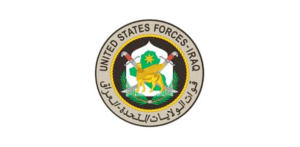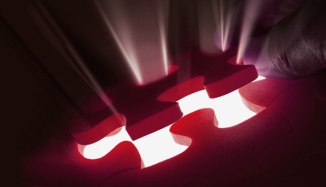
Science Applications International Corporation (SAIC)
Overview
Science Applications International Corporation (SAIC)
Reducing the Risk of SAIC Operations in Iraq During Operation Iraqi Freedom
Almost concurrently with the cessation of major combat operations in Iraq, the government tapped SAIC for support in Iraq reconstruction. This quick reaction requirement required that SAIC establish new processes for immediately deploying its people and resources to support US reconstruction operations. Recognizing this was not only a unique opportunity to serve our country, but also likely to be effort which SAIC would need to repeat many times, SAIC funded a knowledge management project that would enable SAIC to capture, share, and reuse the critical knowledge associated with deploying SAIC people and resources to Iraq and managing and transitioning projects as a result of the deployments for reconstruction.
Bill Kaplan, while Deputy KM Practice Manager for SAIC, planned, developed, and implemented a corporate-wide KM framework to support SAIC’s reconstruction and transformation support programs in postwar Iraq.
The capability enabled the capture and sharing of know-how, insights, and experiences across many dimensions of the Iraq business process. Employees and teams were able to avoid reinventing what had already been done, broadly reduce corporate and personal risk, and embed successful KM practices into their program planning, program management, and day to day work processes. In addition, through learned lessons, the program provided broader insight and experience in developing business, planning projects, and deploying individuals and teams to deliver business in post-combat war zones.
The KM Framework developed included a comprehensive corporate “core knowledge base” that became a resource for managers and employees who needed to understand the challenges of developing, planning, and delivering business in Iraq. A collection of know-how, insights and experiences from people involved in different parts of the process – from business development, to personnel deployment and service delivery – this core knowledge base of continually renewable learned lessons helped people and teams avoid reinventing what had already been learned or experienced through creating, reusing and leveraging knowledge already acquired from Iraq reconstruction operations.
The KM Framework, broadly accessible across the entire SAIC workforce, enabled any employee or team to “hit the ground running” through the benefit of an opportunity to “learn before doing.” Upon return from Iraq, SAIC KM practitioners captured the knowledge of returning Iraq Reconstruction Task Force team members and distilled the key learnings and better practices from their experience.
This new knowledge was then reinvested in the core knowledge base creating a resource that always had the most current knowledge about business operations in Iraq. Those seeking additional discussion or knowledge, because the knowledge provided was tagged by source, could contact directly the members of the Iraq Business Operations through the established “Community of Practice” for more insight to how to use the knowledge.

